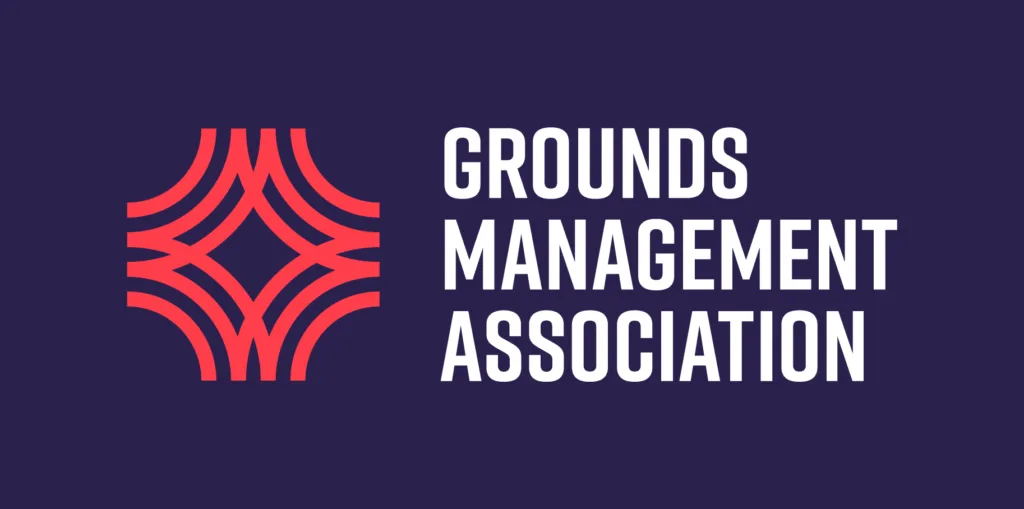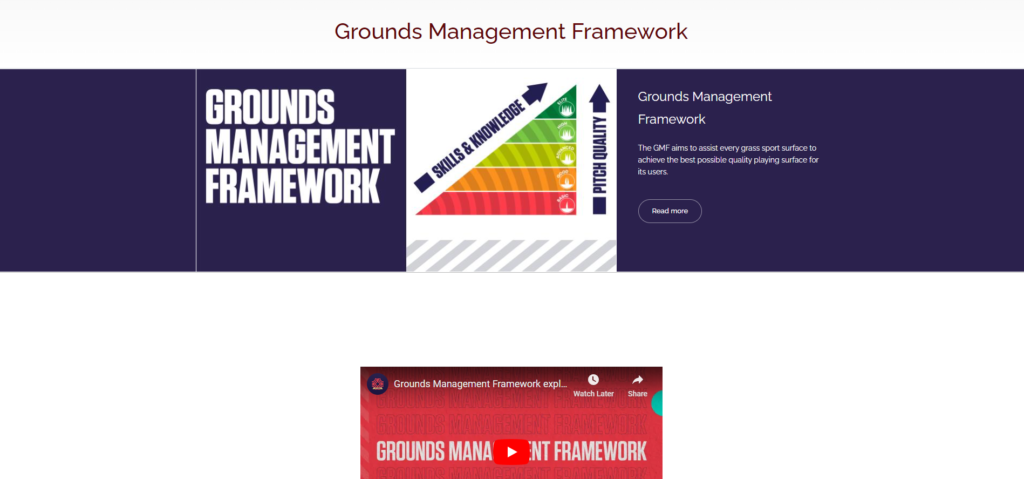In our last article, we reached out to BIGGA to see how the association is strategically adapting to challenges in pay equity, embracing social media, and navigating industry shifts. This time, we’ve asked the same questions to the GMA —and you’re in for an enlightening read.
Q: What do you see as the most significant challenges currently facing the greenkeeping and grounds industry?
Climate change and environmental sustainability are pressing issues. With the wet weather continuing to play havoc this year which saw the cricket season delayed by two weeks, we have seen an increase in demand for advice and guidance from our 16 strong team of Regional Pitch advisors and Key Account Managers regarding flooding. The industry must adapt to changing weather patterns, conserve water, and reduce the use of chemicals while maintaining high-quality turf.
Additionally, keeping up with the latest technology for turf management and equipment can be challenging. There is a need to invest in new technologies that improve efficiency and effectiveness. The GMA’s annual trade show SALTEX – Europe’s premier grounds management show – enables visitors and exhibitors to source and discover innovative products and solutions to cultivate world-class sports pitches, parks, and landscapes, as well as hear from industry experts in our three learning LIVE theatres.
Recruitment continues to be a major issue for the grounds management industry with over 40% of the workforce over the age of 50. Attracting and retaining qualified grounds staff is essential for the industry’s success. The GMA recently launched its NextGen initiative – formerly known as GMA Young Board of Directors – who represent the grounds management industry whilst acting as ambassadors for the GMA, with the aim of encouraging more young people into grounds management through targeted activity such as ‘Schools into Stadia’ and other networking activities.
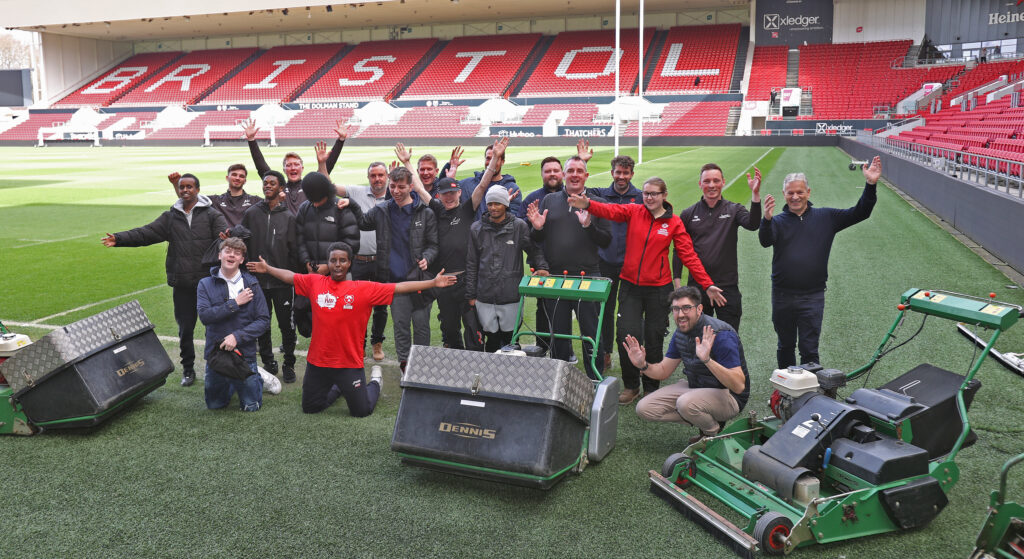
Budget restrictions can limit the ability to invest in new equipment, staff training, and research into sustainable practices. The GMA provides its members with the latest information, advice and guidance tools to help shape this via the GMA’s Toolkit. The GMA’s Grounds Management Framework also provides both employers and employees with a structure that identifies the skills, knowledge, and behaviours required by groundstaff and the investment required to reach the desired pitch quality.
Finally, there is a need to enhance the public’s understanding of the importance of grounds maintenance, which is often undervalued. We at the GMA, continue to raise awareness of the industry and shine a spotlight on the incredible work that grounds staff do with annual campaigns such as #GroundsWeek, the GMA Industry Awards and the SALTEX Exhibition.
These provide a platform for the industry to show off the wide range of areas and elements that go together to deliver sports pitches and make sport possible. SALTEX alone attracts over 7K people each year, alongside key stakeholders, such as National Governing Bodies and Government departments such as the Department for Culture Media and Sport and Sport England.
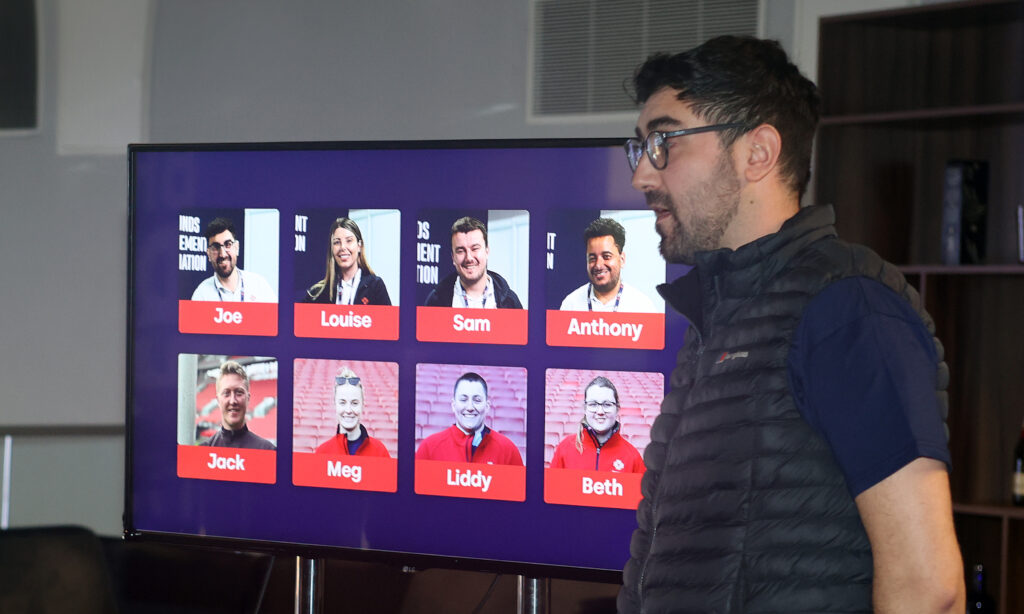
Q: How has the closure of forums, like the recently closed Pitchcare forum, impacted the industry’s information-sharing landscape? Do you think there is still a need for forums?
The grounds industry is a great example of sharing information and knowledge. Professionals and volunteers will happily, and regularly, share techniques and knowledge for the betterment of the industry. The Grounds Management Association supports knowledge sharing through:
- Pitch Advisory Service (PAS) Awareness Sessions: These sessions provide networking opportunities and workshops across the country, compensating for the loss of forums by facilitating face-to-face interactions.
- The Hive & Other Community Platforms: Alternative platforms like The Hive, Honda Rugby Grounds Connected and WhatsApp groups offer new avenues for discussions, ensuring that the conversation continues online.
- Events & Training: Events like SALTEX and training courses offer physical venues for sharing best practices and further networking, which are crucial for industry growth.
- Community Expansion: The GMA’s efforts to expand the community with new membership offerings launching later this year, and an improved engagement strategy indicate a proactive approach to fostering industry connections.
- GMA Toolkit: Tools provided by GMA can help fill the gap left by forums including the GMA’s Toolkit and ‘Ask the Expert’ service, offering valuable resources and guidance for grounds staff.
Q: In light of the increasing use of social media, how is your association leveraging online platforms to connect with members and share valuable information?
The Grounds Management Association is strategically expanding its digital presence to foster stronger connections with its members and the broader community.
By establishing a dedicated communications and marketing team, led by Jennifer Carter, the GMA is poised to enhance its outreach and engagement efforts.
The upcoming launch of its new website reflects the GMA’s commitment to providing an accessible and informative online hub for its members with thousands of free resources available. This initiative, coupled with a renewed social media strategy, signifies a proactive approach to embracing the digital landscape.
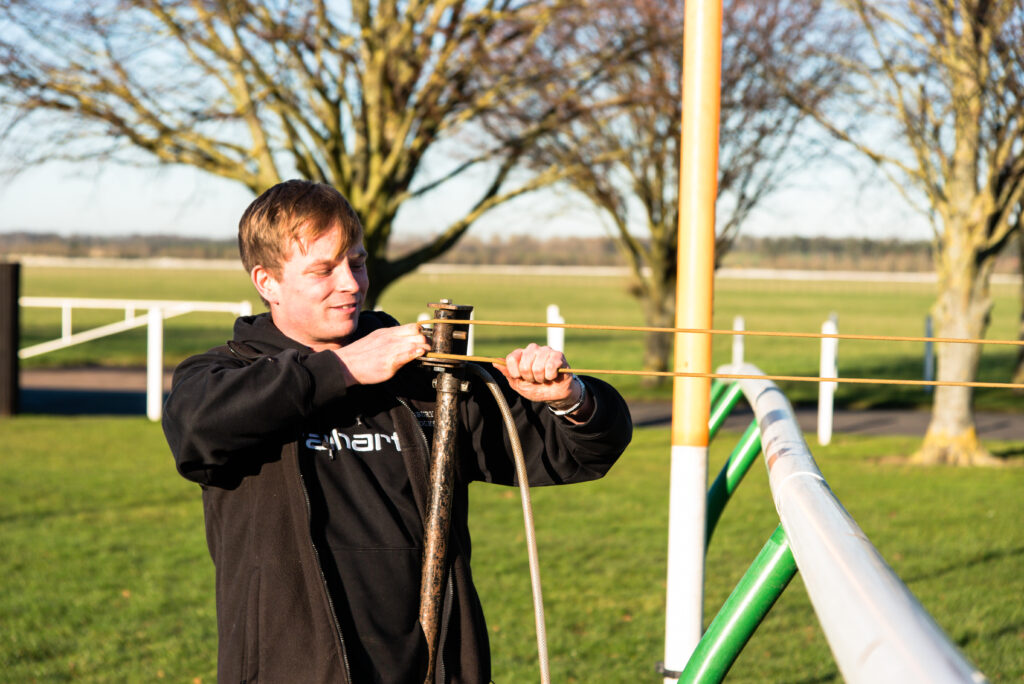
Q: How are you adapting to social media groups being formed that provide new spaces for ground staff to post job listings for free, connect with other ground staff, and share their experiences in different job roles?
The GMA is embracing the evolution of social media as a valuable resource for ground staff. We work with several social media groups through the NGB’s and the Pitch Advisory Service,curating content, sharing advice and guidance and offering ground staff a platform to share their experiences. We are also launching a new jobs board which will not only list industry-relevant vacancies but provide free, useful content to those who may be looking for a job in the grounds care industry such as ‘how to’ guides, interview advice and guidance, as well as engaging career content from the GMA’s Grounds Management magazine.
Overall, we aim to provide a ‘one-stop-shop’ for our members, which enables easier access to the needs of Grounds Managers, offering consistent and information, advice and guidance to the industry.
Q: With the evolving demands in the industry, how is your association addressing concerns related to pay and compensation for greenkeepers and grounds professionals?
When it comes to reward and recognition for the grounds management sector, it has been difficult previously to attribute a ‘one-size fits all approach’ due to the variance in job titles, roles, and salaries. For example, in grounds management across sport, two people can have the same title of ‘Head Grounds Manager,’ but one might be at a top-six Premier League club and the other might be at a grassroots facility.
One could manage a single pitch with one member of staff, or they might oversee a site of twenty pitches with a team of half a dozen. Equally, there are many other factors to consider when it comes to salaries, from performance to CPD (Continuing Professional Development).
To assist with simplifying and consolidating this, the GMA launched the Grounds Management Framework (GMF) – a groundbreaking framework which sets out the national standards for natural turf across sports including Football, Cricket and both codes of Rugby. The GMF aims to legitimize and professionalise the industry. For the first time it sets out a clearly defined pathway and progression in the sector, whilst providing clear development and lifelong learning opportunities for those already employed or volunteering within grounds management.
Additionally, the GMF combines benchmarking qualities, skills and knowledge, and resources required to maintain natural turf sports surfaces into one easy-to-use framework. By grading the standard of a playing surface, from basic to elite, grounds staff, employers, and key stakeholders will be able to understand the level of expertise required for the pitch’s maintenance.
The next stage of the GMF is aligning salary bands with each level of the framework so that grounds staff and their employers can understand what the appropriate salary would be in recognition of their professional expertise.
Working with the NGBs, our aim is to embed the GMF into the sports standards so that it becomes a key reference point which aligns pitch quality, experience, skills required and ultimately the associated salary for those maintaining that standard of pitch.
By launching the GMF, we are inspiring the next generation and futureproofing the industry by beginning to address the current recruitment crisis in the industry and closing the gap in an aging workforce.
Q: Are there ongoing initiatives to advocate for fair wages and benefits within the industry?
In addition to the GMA’s Grounds Management Framework, we regularly engage with NGBs, Sport England, the Department of Culture Media and Sport to lobby for fair wages and benefits across the industry.
Q: Given the reported staffing shortages in the industry, how is your association working to
help organizations attract and retain skilled professionals?
We acknowledge the staffing shortages in the industry and are actively working to address this issue through several strategic initiatives:
- Workforce Development: We have placed workforce development at the heart of our strategy. This includes attracting new talent and accelerating the growth of a opportunities. This helps organisations to develop their staff and improve retention rates.
- Industry Representation: We are actively representing the interests of the grounds management industry at a national level with NGBs and Government. This includes advocating for better funding and investment in the sector, as well as raising awareness of the important role that grounds staff play in maintaining sports facilities and green spaces. Funding and
- Investment: We advocate for increased funding and investment in the grounds management sector. This includes securing funding for training and development programs, as well as for the procurement of necessary equipment through the Pitch Advisory Programme and Pitch Power. diverse workforce. We are focusing on creating pathways for young people to enter the profession and providing training and development opportunities for existing staff.
- People and Culture: We are working to improve the culture within the industry by promoting diversity and inclusion. This involves addressing the underrepresentation of women and minorities in grounds management roles. We recently delivered a ‘Women in Grounds’ showcase in partnership with the WSL, Women in Football and Arsenal FC which saw 13 trailblazing women become the first all-female grounds team in football to prepare and maintain the iconic Emirates pitch.
- Services and Support: We offer a range of services and support to our members and broader industry including access to training, resources, and networking

Q: Are there specific programs or strategies in place to address the recruitment challenges faced by the industry?
The aforementioned Grounds Management Framework – skills knowledge and behaviors required to attain a certain level or quality of playing surface, alongside this Workforce Development forms one of the six pillars within the GMAs latest strategy. We have been engaging with the National Governing Bodies of sport to not only identify the gaps but to provide initiatives and programmes, especially at grassroots level.
Land-based colleges and apprenticeships are also vital to the provision of the next generation of Grounds Managers and the GMAs NextGen initiative will engage within these areas to improve the shortage of ground staff and talent coming through.
Q: How has your association adapted its training and education programs to align with the changing needs and advancements in the grounds industry?
In response to the evolving demands and technological progress in the greenkeeping and grounds industry, The GMA has taken proactive steps to ensure our training and education programs remain at the forefront of the field. We are committed to fostering excellence in grounds management by providing our members with the necessary knowledge, resources, and networking opportunities to thrive.
- Our approach includes:
Developed a new learning management system (LMS): This allows enhanced acessibility providing 24/7 access to training materials, allowing members to learn at their own pace and convenience. All training materials, resources, and updates are housed in one platform, making it easier for members to find and utilize the information they need. The LMS can track progress and performance, providing valuable insights into the effectiveness of training programs and identifying areas for improvement. The development of such technology futureproofs the GMA’s training and learning offering, allowing us to use the latest technology in this area to enhance learners experience and engagement. By adapting our programs in these ways, we align with the changing needs and advancements in the industry. - Continuous Review and Updates: We ensure that our professional development qualifications and training courses are regularly assessed and refined. This guarantees that our offerings are not only current but also adhere to the highest standards.
- Recognition of Excellence: Our programs are recognised by the matrix Standard, a benchmark of the Department of Education, which signifies our commitment to maintaining quality in education and training.
- Skill Development: We cater to the development of both technical skills and ‘soft’ skills, ensuring a well-rounded educational experience for all members, from professionals to volunteers.
- Inclusive Learning: Our association believes in inclusivity, providing opportunities for learning and growth to both seasoned professionals and dedicated volunteers.
- Independent Support: We offer reliable and independent information, advice, and guidance (IAG) to all our members, empowering them to make informed decisions and advance in their careers.
Q: Are there new certifications or training modules introduced to enhance the skill set of industry professionals?
We continually update our unique range of online training courses, face-to-face courses, and our suite of Professional Development qualifications. This year alone some 1900 individuals have undertaken GMA training courses and qualifications. This unique suite of training courses and qualifications is instrumental in advancing the knowledge and skills of grounds professionals and volunteers, fostering a culture of excellence within the industry.
We have also developed courses including hybrid pitch maintenance and those which focus on specialist subjects such as warm season grasses, fertilisers, etc.
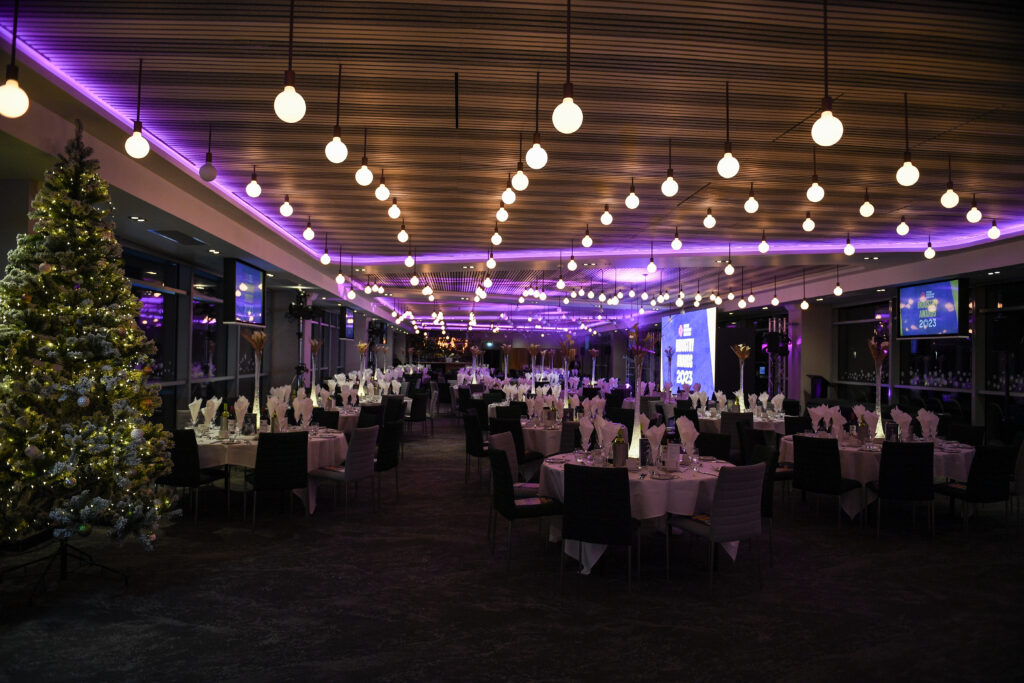
Q: How do you envisage the future of the greenkeeping and grounds industry, and what role does your association play in shaping that future?
We accept that we face a challenge to improve professional recognition. It will take time to address these changes; however, we are making good progress.
The Grounds Management Association celebrates its 90 th anniversary this year, demonstrating the association’s value in assisting and supporting its members and the broader industry over the last nine decades.
The value of industry should not be underestimated; currently the industry employs over 37,000 people with 45,000 volunteers, supports over 5,000 businesses, and holds an approximate economic value of £1 billion. This is a huge achievement.
Industry representation and workforce development are core pillars within the GMA’s strategy – we hope that through the delivery of our five-year strategy that the grounds management industry will have a viable pipeline of skilled talent for generations to come.
At the GMA, an organisation that was founded by grounds staff, for grounds staff, we’ll continue to build on positive developments such as the Grounds Management Framework, our work with the sporting National Governing Bodies, and efforts to improve resources available to members and the wider industry so that, as an industry, we can face these challenges head on.
Our increasingly close partnerships with the sporting National Governing Bodies (NGBs), including ECB, RFU, RFL, FA, Football Foundation, provide us with more influence in gaining support for the grounds care community.
By continuing to highlight the importance of grounds staff, as well as the struggles faced, we’re working to identify solutions with the NGBs so that the role of ground staff is embedded in the wider sporting operation.
Q: How does your association gather feedback from members regarding their needs, concerns, and suggestions?
The GMA conducts annual surveys with all its members to better understand their needs and concerns. This is vital for us to gather all the information we need and help shape any future activities relevant to the industry. In addition to our survey, we work closely with a charity called Perennial who conduct a bi-yearly wellbeing survey for individuals involved in horticulture.
Individuals who complete our training courses will also be asked to provide feedback from their course which, again, enables us to stay relevant and ensures we are providing the best possible training for the industry.
Big thanks to the GMA for contributing to this article.
You can read the full article on our website and learn more about how the GMA supports groundstaff by visiting www.thegma.org.uk

